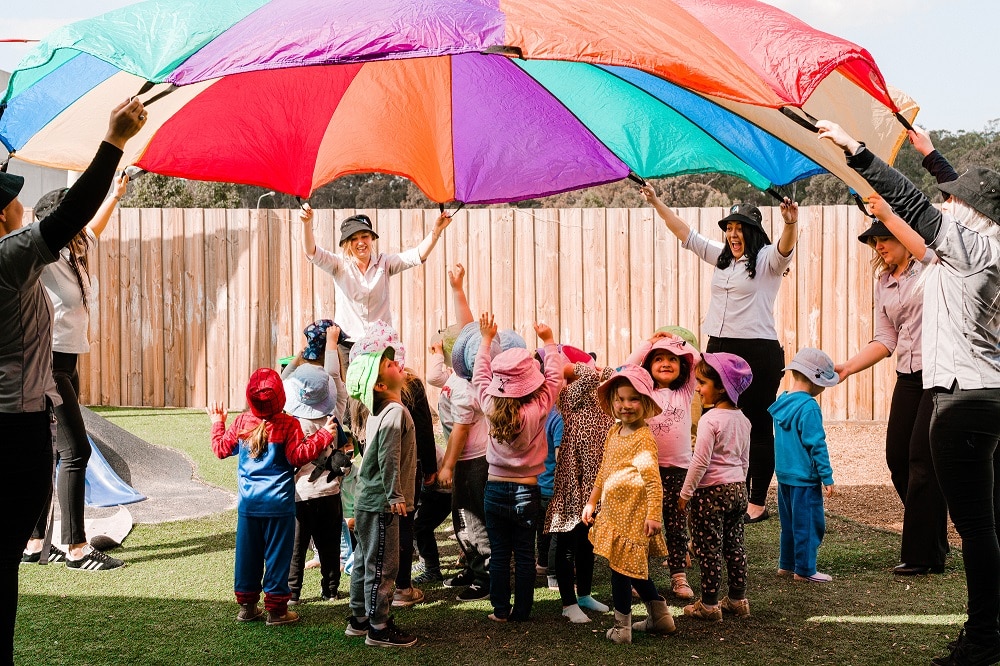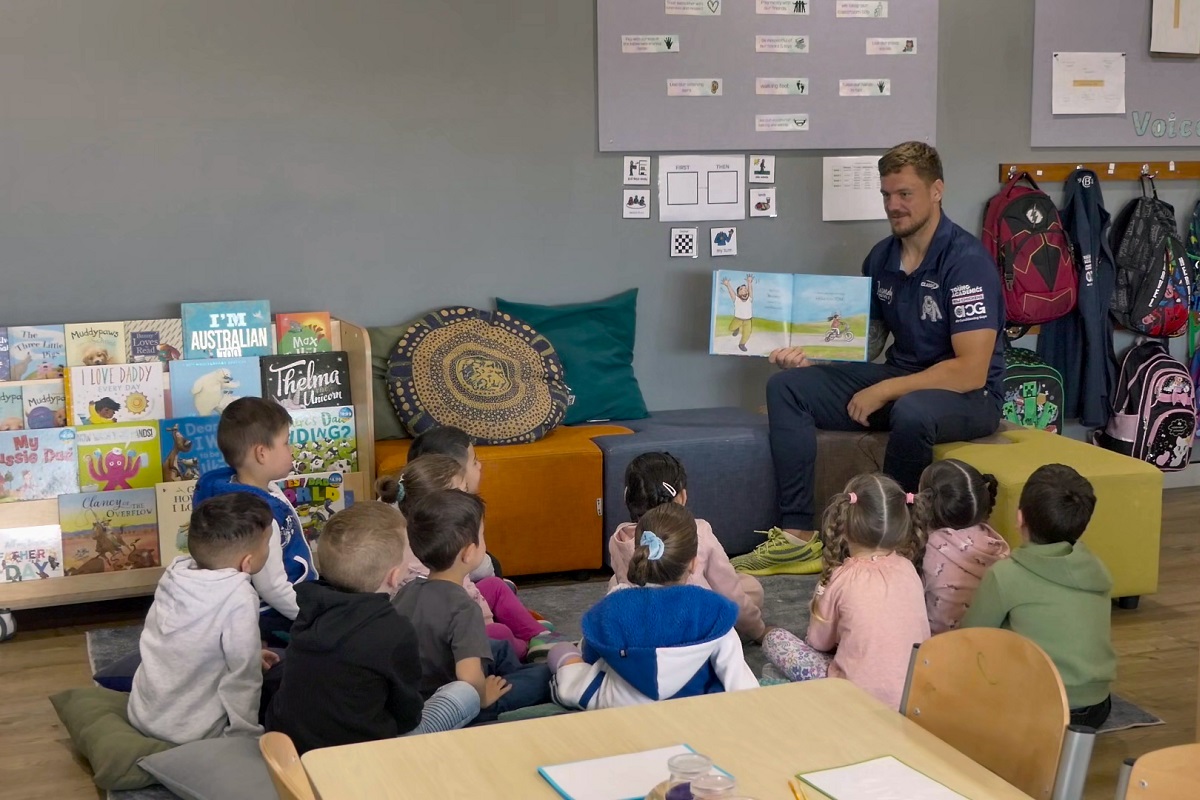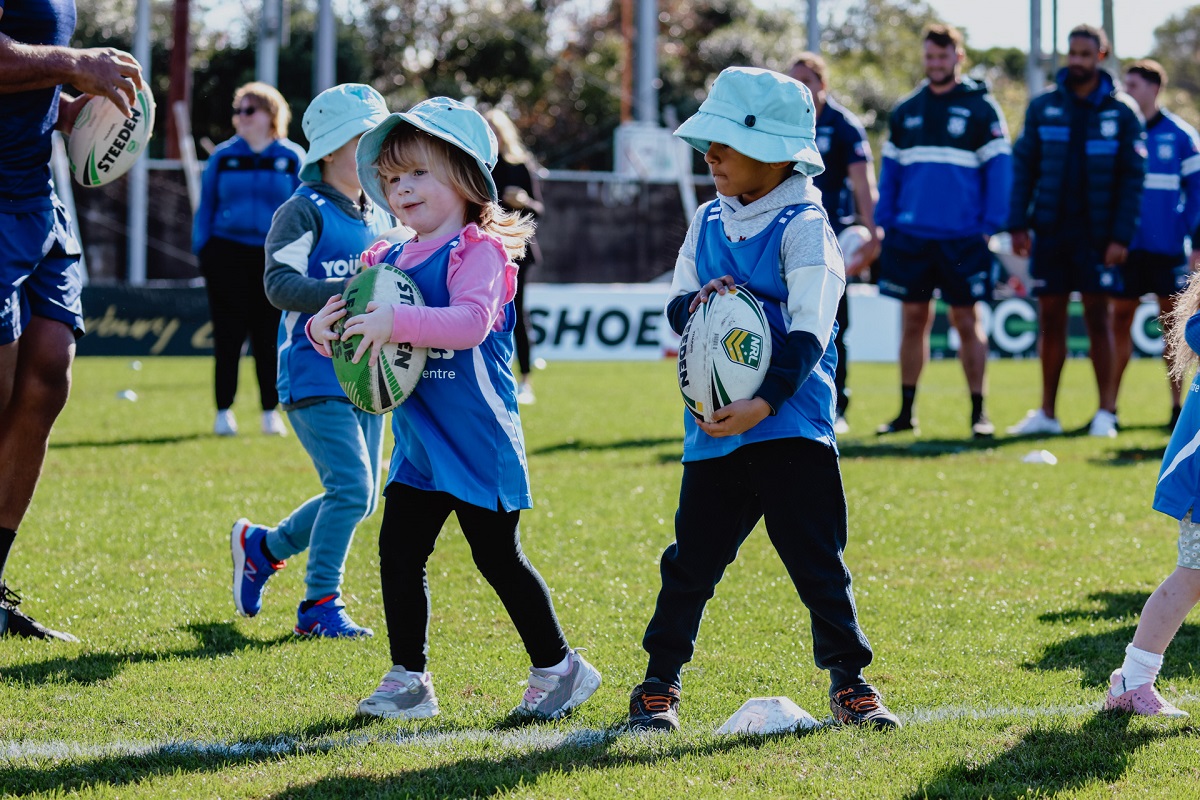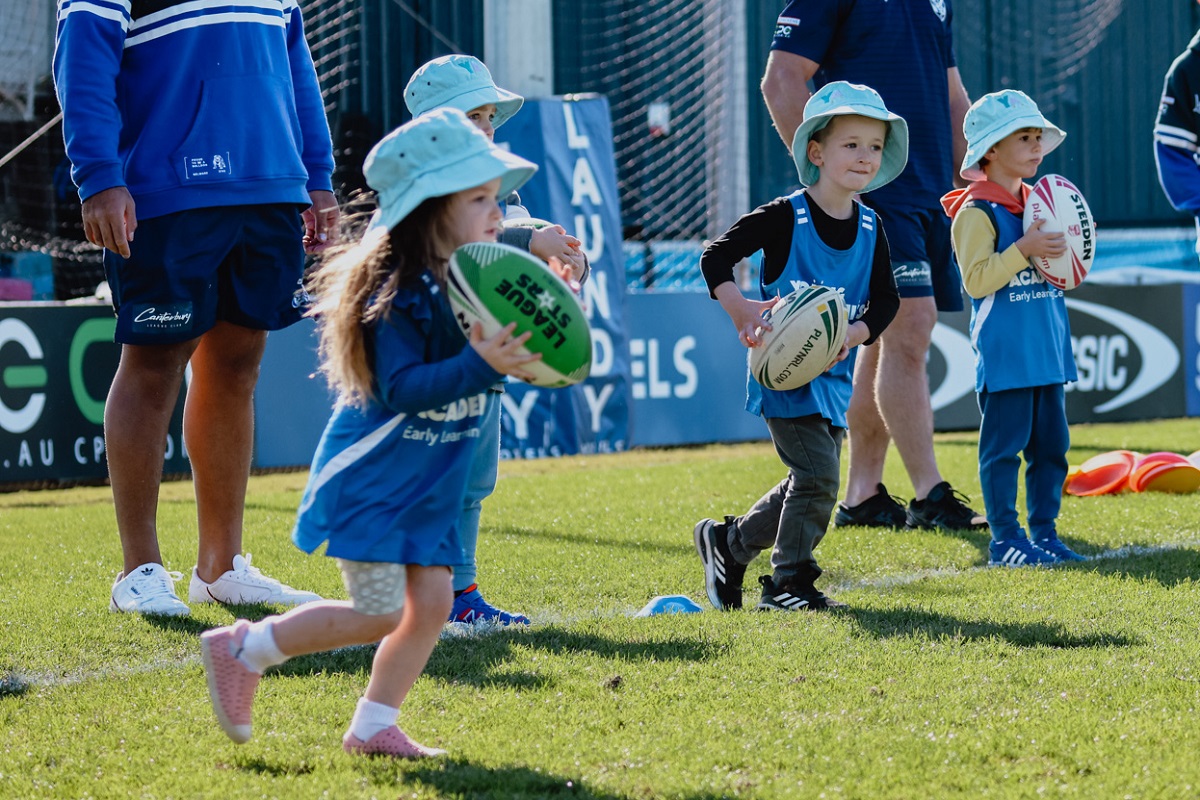Children are adventurers in their own right and use their own experiences to help them thrive. Providing them with the right experiences will positively contribute to their learning and developing. It is extremely important for preschoolers and children to incorporate active play within their daily routine as well as ensuring they are receiving an ample amount of sleep. Balancing these experiences can positively contribute to their learning, helping them grow into the best version of themselves.
Importance of active play for preschoolers
Being active should be an essential part of every single day. It is a crucial element of a child's growth and development, as well as assisting with their social, language, emotional and intellectual skills. Active play also helps children understand and respond to specific situations, such as conflict resolution and sharing. This can also help children learn to deal with small challenges that might come their way.
In early childhood, physical activity involves unstructured or unplanned 'free play' where walking or even pedalling is considered 'active play'.
"About 4 out of 5 children in Australia don't get the daily 1 hour of physical activity they need for good health" - Health Direct
Play experiences are great for preschoolers as they allow them to explore and discover what their bodies can do. Children learn best when they practically apply themselves, using their 5 senses to explore their surroundings. This helps them stimulate both their mind and body. Free-movement and active play is the most appropriate form of physical activity for preschoolers and young children. This type of play allows children to move at their own pace, in a natural, free-flowing environment.
During active play, children must be encouraged to:
- Move their body in a variety of different ways
- Use their creativity and imagination
- Enjoy playing individually and in group settings
- Feel proud and accomplished about what they can do
Outdoor play is an excellent way of encouraging children to participate, as it offers more chances for them to move, explore and discover different environments. Children learn through using the environment as their 'materials'. From finding different objects to feeling the sand or the breeze on their face, the outdoor environment is a sensory experience for children, full of noise, sights and smells.
Physical activity should be implemented daily in every family! Children must engage in active play both at home and in early childhood settings, to ensure they are receiving the best possible learning experience.
"Children over 5 should be physically active for at least 60 minutes every day. It doesn't have to be a structured sport - anything that gets them up and moving will do" - Health Direct
Activities and games designed to encourage active play
It is vital to have the right toys and equipment in the surrounding environment for children to make the most of their active play. A great way to do this is by making use of everyday recyclable products.
| Material | Use |
| Ice-cream containers | Buckets or markets |
| Plastic containers/milk containers | Bowling activities or skittles |
| Cardboard boxes | Cars or tunnels |
| Empty food cartons | Building blocks |
| Old bedsheet | Parachute |
Some outdoor activities and games that are also beneficial include:
- Throwing a ball into a bucket at varying distances
- Potato sack races
- Parachute games
- Catching games
- Follow the leader
- Obstacle courses
- Kicking and throwing a softball
- Running and stopping
- Blowing bubbles and catching
- Musical chairs
- Colouring in
- Building blocks
- Ten-pin bowling
- Hide and seek
It is important that children engage in active play as it is not only important for social and cognitive development, it has many health benefits for preschoolers and young children including:
- Developing healthy bones, muscles and joints
- Developing a healthy heart and lungs
- Improving coordination, strength and muscle control
- Maintaining a healthy body weight
- Improving balance and posture
“Children should also limit the amount of time they spend sitting, and those aged over 5 should spend no more than 2 hours a day in front of a screen”. - Health Direct
Implementing daily routines and health practices are important for children as they will carry this through to adulthood.
Importance of sleep for children
Children are energetic vibrant little humans that require a healthy sleep pattern in order to function properly. The benefits of good sleep are endless for both children and adults as it contributes to one's overall health and wellbeing.
“Sleep allows our bodies to repair and rejuvenate through repairing tissue, boosting muscle mass, synthesising proteins, releasing growth hormones and maintaining a strong immune system (sleep-deprived children, for example, are much more prone to common colds and flu).” - Life Education Organisation
Healthy sleep requires:- A sufficient amount
- Uninterrupted sleep
- Age-appropriate naps
The importance of sleep is often overlooked. However, it is crucial to note how it is a significant part of children's health, growth and development.
Why is sleep so important for children?-
Sleep promotes growth - according to Judith Owens (director of Children's National Medical Centre in Washington, D.C.), the growth hormone is secreted during sleep, meaning children need to have a deep sleep to help them grow
-
Sleep helps the heart - sleep is also extremely crucial for children as it protects them from vascular diseases and other disorders
-
Sleep affects weight - too little sleep can cause kids to become overweight.
-
Sleep helps fight infection - when children are sleeping, it allows them to rest and further aid the body to heal. In addition to this, during sleep, both children and adults produce proteins known as cytokines, which the body relies on to fight infection, illness and stress.
-
Sleep boosts learning and attention span - sleeping and napping increases children's concentration levels and boosts their learning experience.
- Limit technology before bed-time
- Set a regular routine
- Watch sugar and caffeine intake
- Understand how much sleep is required for your child
Both active play and sleep are vital for children's health, growth and development. It assists with their overall wellbeing and supports their social, cognitive and physical skills. Children must receive the recommended amount of active play and sleep daily to nurture their growth and wellbeing.
At Young Academics, we ensure children engage in active play through sensory activities, dramatic play and outdoor learning experiences. We also incorporate nap-times for children depending on their age and the required amount of sleep. Our nurturing educators guarantee your little ones are in safe hands.
Learn more about our facilities and programs today!
Call us on 1300 668 993.



 BACK
BACK



